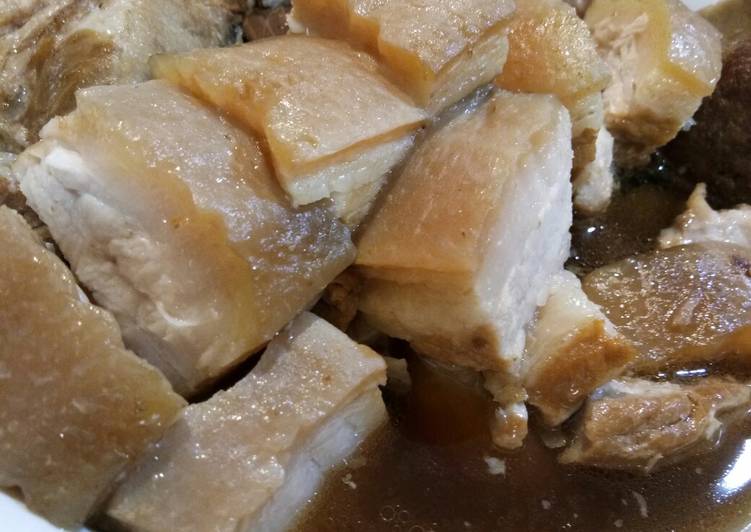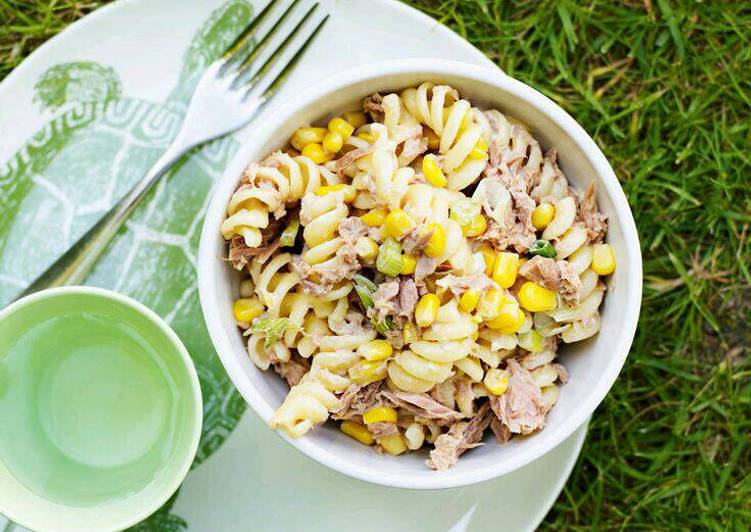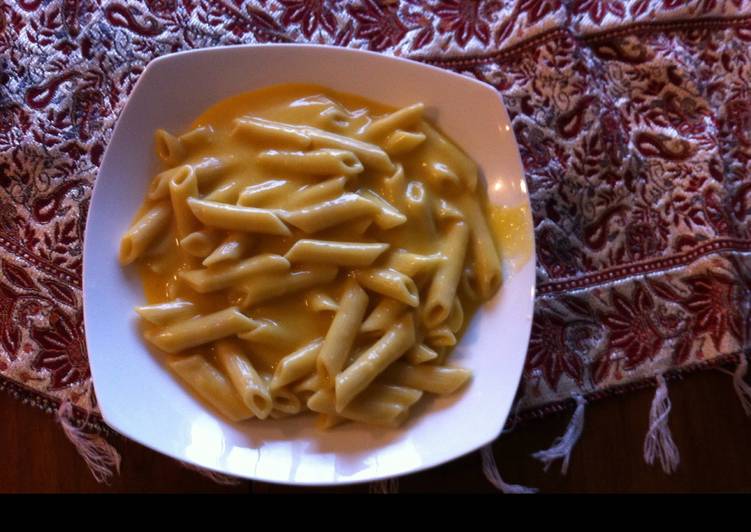
Hello everybody, hope you are having an incredible day today. Today, I’m gonna show you how to make a distinctive dish, bak kut teh (pork ribs tea). One of my favorites. This time, I’m gonna make it a little bit tasty. This is gonna smell and look delicious.
Bak Kut Teh (Pork Ribs Tea) is one of the most popular of current trending meals on earth. It is appreciated by millions every day. It is simple, it’s fast, it tastes delicious. Bak Kut Teh (Pork Ribs Tea) is something that I have loved my entire life. They’re fine and they look fantastic.
Bak Kut Teh (Pork Ribs Tea) is a Chinese herbal soup with dong gui known for its warming properties. This comforting dish is perfect for the colder months. Bak Kut Teh in the Hokkien or Fujianese dialect literally translates to Pork Rib Tea.
To get started with this recipe, we have to prepare a few ingredients. You can have bak kut teh (pork ribs tea) using 25 ingredients and 6 steps. Here is how you cook that.
The ingredients needed to make Bak Kut Teh (Pork Ribs Tea):
- Get Pork Soup Bone (Sin Guat)
- Take Pork Ribs (Pai Guat)
- Get Pork Shoulder (Jue Jiang)
- Take Pork Throttle (Jue Shaou)
- Make ready Chinese Herbs
- Get Sun Kee Ready Pack BKT
- Get Anglica Sinensis (Dong Guai)
- Make ready Solomons Seal (Yuk Juk)
- Prepare Codonopsis Root (Dong Sum)
- Prepare Rehmannia (Suk Dai)
- Prepare Star Anise
- Get Cloves
- Take Stick Cinnamon
- Make ready Fennel Seeds
- Make ready Black Dates
- Make ready Wolfberries
- Prepare Licorice Root (Kum Chou)
- Take Ingredients
- Get 3 Bulbs Smoke Garlic
- Get 3 Bulbs Normal Garlic
- Prepare 2 pcs thumb sized Ginger
- Take Seasoning
- Take 6 tbsp soy sauce
- Make ready 3 tsp rock salt
- Take 1 1/2 tsp crystal sugar
This pork ribs soup is intensely flavorful. A concoction of spices like peppercorn, salt, star anise, cloves, cinnamon, and lots of garlic give Bah Kut Teh its complex. Bak Kut Teh can be translated as meat bone tea or pork rib tea. However, there is no tea in the soup.
Instructions to make Bak Kut Teh (Pork Ribs Tea):
- Bak Kut Teh herbs can be purchased from local Chinese herbal shop or super market. These herbs now comes with different brands. We mix a packet of ready made packet of mixed herbs in a sachet and picked some herbs from a local herbal shop for this. Some herbs make the soup black in color while some in light brown. Teo Chew BKT will be very light grey.
- Boil all the pork bones and meat in hot water for 20 minutes to remove scums, oil and smell. Set aside.
- Boil 3 litres of water in a pot with all the herbs and soup bone for 30 minutes.
- Put in the rest of the pork meat, garlic and ginger into the pot and boil for another 20 minutes. Add in salt and soy sauce and boil for another 10 minutes.
- Turn off fire. Let the pot cool down and keep in the fridge overnight. Alternatively if you have a keep warm thermos pot you can keep in there. This overnight process will marinate the herbal soup and seasoning into the meat.
- After overnight, boil the pot. When the pot is hot, add in sugar. Adjust to taste. The soup should taste little salty and sweet. Let it simmer in slow cook for 3 hours and serve. You can add in other optional items such as tofu pok, emoki mushroom or vege. Goes well with white rice and soy sauce with garlic and chili padi.
Instead, oolong tea is often served on the side with the dish to counterbalance the meatiness and richness of the soup. There are different versions of bak kut teh. The Singaporean version of the soup is made with meaty pork ribs, a lot of. Ladle the bak kut teh broth into four to six individual serving bowls, adding portions of spare ribs and pork belly. Serve with hot rice, the yau ja gwai and the chilli soy dipping sauce for the meat.
So that’s going to wrap it up with this exceptional food bak kut teh (pork ribs tea) recipe. Thank you very much for your time. I am sure that you can make this at home. There is gonna be interesting food in home recipes coming up. Remember to bookmark this page on your browser, and share it to your family, colleague and friends. Thanks again for reading. Go on get cooking!


